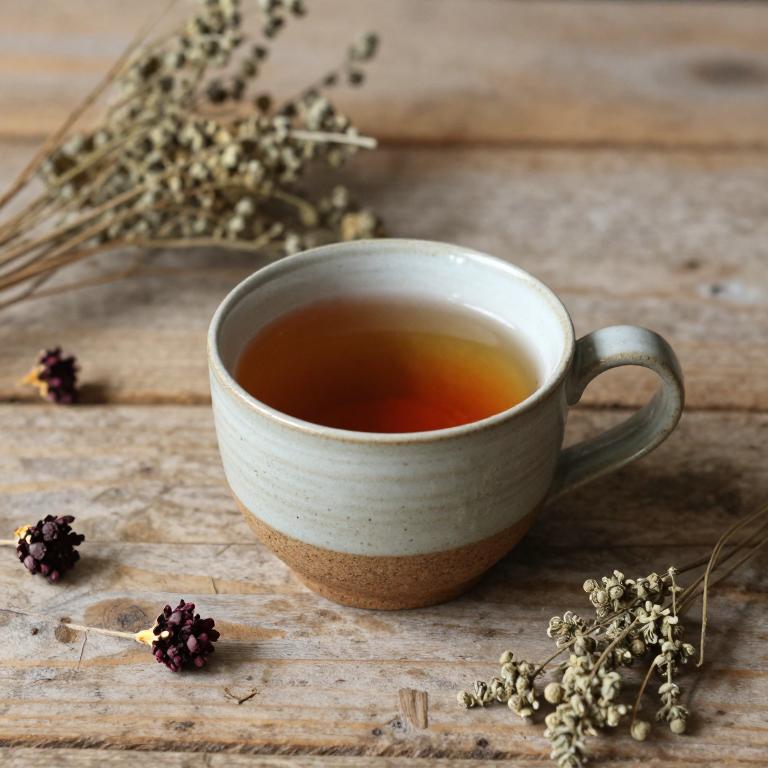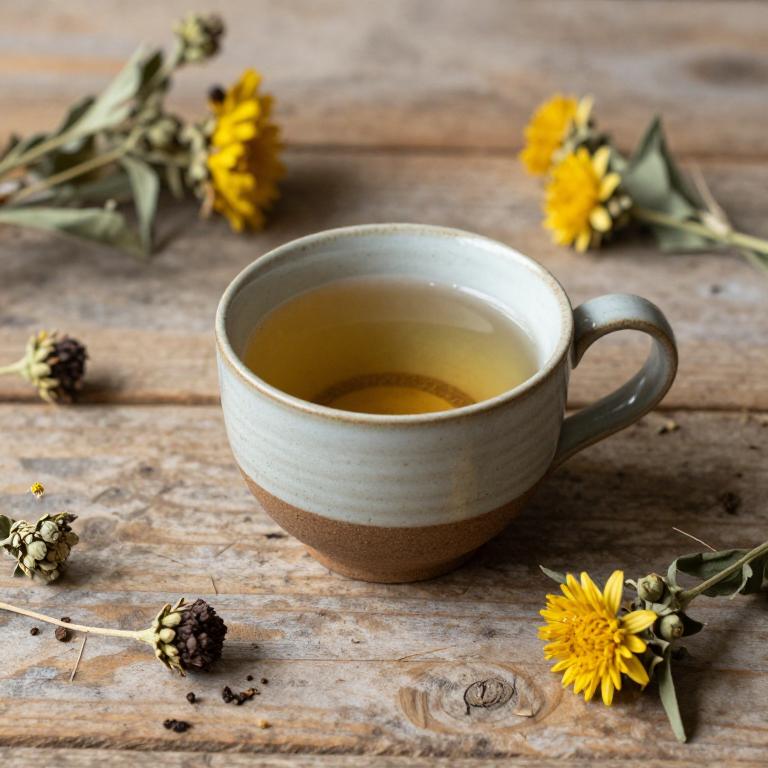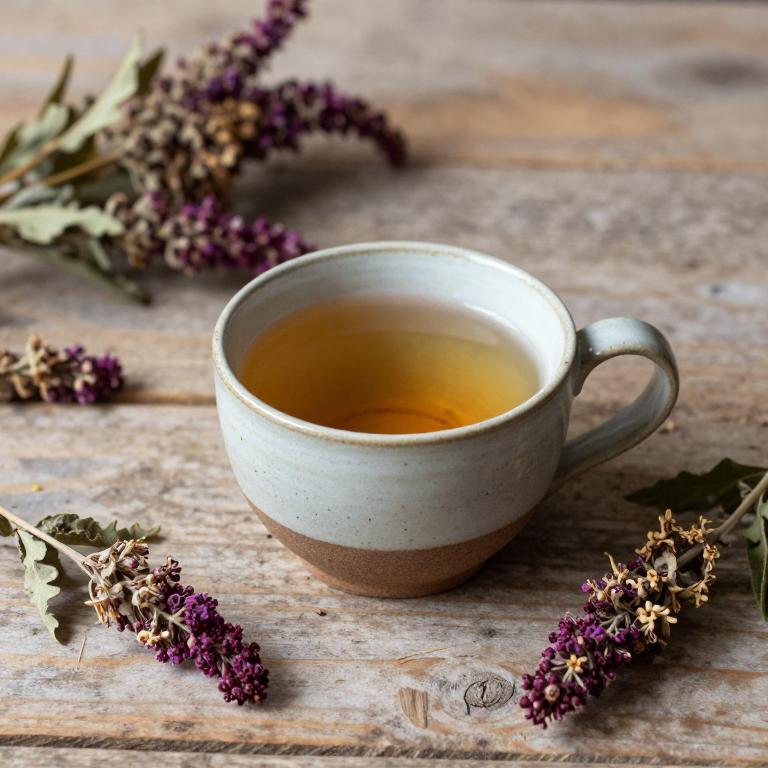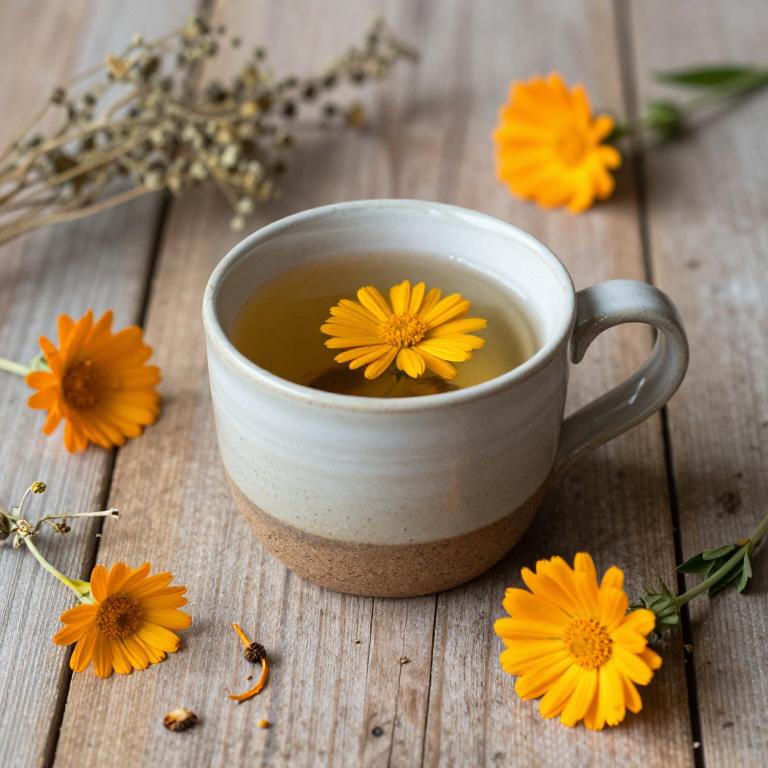10 Best Herbal Teas For Over Bleeding During Periods

Herbal teas can be a natural and soothing option for managing heavy bleeding during menstruation, as they often contain ingredients known for their anti-inflammatory and hemostatic properties.
Chamomile, peppermint, and ginger are commonly used herbs that may help regulate menstrual flow and reduce cramping. These teas can also promote relaxation, which may indirectly support hormonal balance and ease menstrual symptoms. However, it is important to consult with a healthcare provider before using herbal remedies, especially if you have underlying health conditions or are taking medications.
While herbal teas can be a complementary approach, they should not replace professional medical advice or treatment for severe or persistent menstrual bleeding.
Table of Contents
- 1. Chaste tree (Vitex agnus-castus)
- 2. Stinging nettle (Urtica dioica)
- 3. Black cohosh (Cimicifuga racemosa)
- 4. Fennel (Foeniculum vulgare)
- 5. Heartworts (Leonurus cardiaca)
- 6. Rosemary (Rosmarinus officinalis)
- 7. Sanguisorba (Sanguisorba officinalis)
- 8. Marigold (Calendula officinalis)
- 9. Common hawthorn (Crataegus oxyacantha)
- 10. Field horsetail (Equisetum arvense)
1. Chaste tree (Vitex agnus-castus)

Vitex agnus-castus, commonly known as chasteberry, is a herbal remedy often used to support hormonal balance and may help reduce heavy bleeding during menstruation.
This herb is believed to influence the pituitary gland, potentially regulating prolactin levels and improving menstrual regularity. Studies suggest that chasteberry may alleviate symptoms of premenstrual syndrome (PMS) and reduce menstrual flow in women with hormonal imbalances. It is typically consumed as a tea made from dried berries, and is often recommended for women experiencing irregular periods or excessive bleeding.
However, it is important to consult a healthcare provider before using chasteberry, especially for those with existing medical conditions or taking other medications.
2. Stinging nettle (Urtica dioica)

Urtica dioica, commonly known as stinging nettle, is a herbal remedy that has been traditionally used to support women's health, including managing heavy menstrual bleeding.
When brewed into a tea, stinging nettle is believed to help reduce excessive blood loss during periods by strengthening the uterine lining and promoting hormonal balance. It is rich in iron and other nutrients that can help replenish the body after significant blood loss. However, it is important to consult with a healthcare provider before using stinging nettle tea, especially for those with existing health conditions or who are on medication.
While some studies suggest potential benefits, more research is needed to fully understand its efficacy and safety for menstrual health.
3. Black cohosh (Cimicifuga racemosa)

Cimicifuga racemosa, also known as black cohosh, is a herbal remedy commonly used in women's health to address menstrual irregularities, including heavy bleeding during periods.
It is believed to support hormonal balance by influencing estrogen and progesterone levels, which may help regulate menstrual flow. Herbal teas made from Cimicifuga racemosa are often consumed during the menstrual cycle to reduce excessive bleeding and associated symptoms like cramping and fatigue. However, it is important to consult a healthcare provider before using this herb, especially for pregnant women or those on hormone-related medications.
While some studies suggest its effectiveness, more research is needed to fully understand its mechanisms and long-term safety.
4. Fennel (Foeniculum vulgare)

Foeniculum vulgare, commonly known as fennel, is often used in herbal teas to support women's health, including managing excessive bleeding during menstruation.
The herb is believed to have mild uterine tonic properties that may help regulate menstrual flow and reduce heavy bleeding. Fennel tea can be prepared by steeping the dried seeds in hot water and drinking it in moderation during the menstrual cycle. However, it is important to consult a healthcare provider before using fennel tea, especially for those with hormonal imbalances or existing medical conditions.
While some studies suggest potential benefits, more research is needed to fully understand its efficacy and safety for this purpose.
5. Heartworts (Leonurus cardiaca)

Leonurus cardiaca, commonly known as heart herb or red clover, is traditionally used in herbal medicine for its potential benefits in managing excessive bleeding during menstruation.
This herb contains compounds such as flavonoids and isoflavones, which may help regulate hormonal balance and reduce uterine contractions, thereby minimizing menstrual flow. When brewed into a tea, Leonurus cardiaca is believed to support the body's natural processes and promote a more balanced menstrual cycle. However, it is important to consult with a healthcare provider before using this herb, especially for individuals with existing health conditions or those taking other medications.
While some studies suggest its efficacy, more scientific research is needed to fully understand its effects and safety profile in treating heavy menstrual bleeding.
6. Rosemary (Rosmarinus officinalis)

Rosmarinus officinalis, commonly known as rosemary, is often used in herbal teas to support menstrual health and may help alleviate symptoms of heavy bleeding during periods.
The essential oils in rosemary, such as cineole and camphor, are believed to have antispasmodic and astringent properties that can help reduce excessive uterine contractions and blood flow. While rosemary tea is generally considered safe for most women, it is important to consult with a healthcare provider before use, especially for those with hormonal imbalances or who are pregnant. Some studies suggest that rosemary may help regulate menstrual cycles and reduce cramping, though more research is needed to confirm its effectiveness for heavy bleeding.
As with any herbal remedy, individual responses can vary, and it should be used as a complementary, not a replacement, therapy for medical treatment.
7. Sanguisorba (Sanguisorba officinalis)

Sanguisorba officinalis, commonly known as common sanguisorb, has been traditionally used in herbal medicine for its potential benefits in managing excessive menstrual bleeding.
The herb contains tannins and other compounds that may help to tone the uterine lining and reduce blood flow during menstruation. When prepared as a tea, sanguisorba officinalis is often combined with other herbs like cranesbill or yarrow to enhance its hemostatic properties. However, it is important to consult a healthcare provider before using this herb, especially for individuals with existing health conditions or those taking medications.
While some studies suggest its efficacy, more clinical research is needed to fully understand its role in treating menorrhagia.
8. Marigold (Calendula officinalis)

Calendula officinalis, commonly known as pot marigold, is often used in herbal teas to support women's health, including managing heavy bleeding during menstruation.
The plant contains anti-inflammatory and astringent properties that may help reduce excessive menstrual flow and ease associated discomfort. Herbal teas made from calendula are typically prepared by steeping dried flowers in hot water, making them a simple and accessible remedy. While some studies suggest its potential benefits, it is important to consult a healthcare provider before using calendula, especially for those with underlying health conditions or who are pregnant.
As part of a holistic approach, calendula tea may complement other lifestyle and dietary changes to support menstrual health.
9. Common hawthorn (Crataegus oxyacantha)

Crataegus oxyacantha, commonly known as hawthorn, is traditionally used in herbal medicine for its potential to support women's health, including managing heavy menstrual bleeding.
While not a primary remedy for over bleeding during periods, some studies suggest that its antioxidant and anti-inflammatory properties may help regulate hormonal imbalances that contribute to excessive menstrual flow. Herbal teas made from hawthorn berries are often consumed as a calming tonic to support overall cardiovascular and reproductive health. However, it is important to consult with a healthcare provider before using hawthorn, especially if experiencing heavy periods, as it may interact with other medications or conditions.
As with any herbal remedy, individual responses can vary, and it should be used as part of a broader approach to menstrual health.
10. Field horsetail (Equisetum arvense)

Equisetum arvense, commonly known as field horsetail, has been traditionally used in herbal medicine for its potential astringent and anti-inflammatory properties.
Some herbalists suggest that equisetum arvense tea may help reduce excessive bleeding during menstruation by promoting uterine contraction and decreasing blood flow. However, it is important to note that scientific research supporting its efficacy for this specific use is limited. As with any herbal remedy, it should be used with caution and under the guidance of a qualified healthcare provider, especially for individuals with existing health conditions or those taking other medications.
Always consult a professional before using equisetum arvense or any herbal remedy for menstrual health.